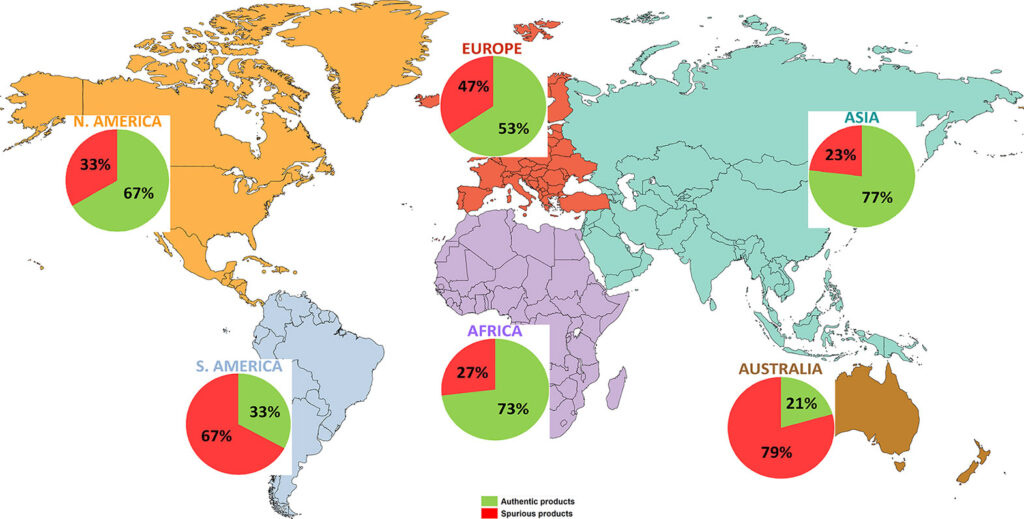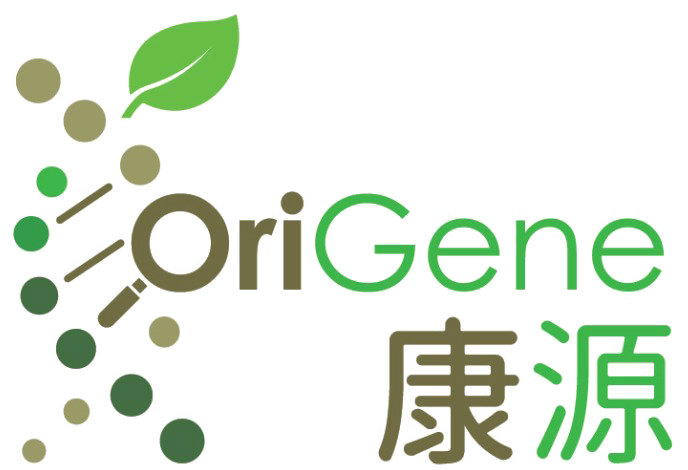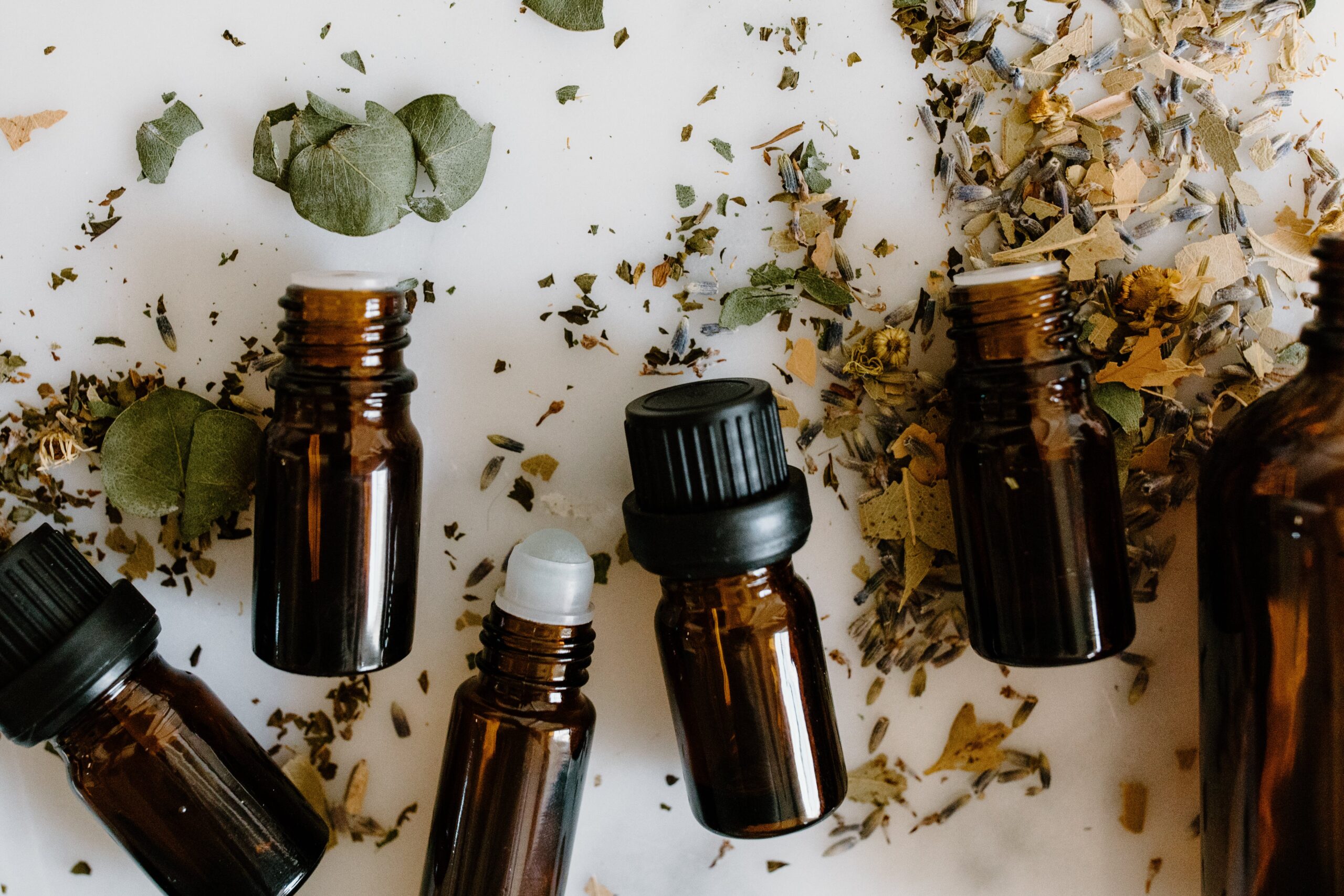A research (Mihael Cristin Ichim, 2019)1 reveals that over 27% of herbal products available in the market are adulterated. We will delve into the issue of adulteration in herbal products, its potential risks, and how you can ensure the authenticity and safety of the herbal products you use. So, let’s unravel the truth behind the scenes of the herbal industry.

DNA-based authenticity varies substantially among continents (authentic/adulterated %): Asia (77/23%) (light blue-green), Europe (53/47%) (reddish-orange), Africa (73/27%) (violet), North America (67/33%) (orange), South America (33/67%) (blue), and Australia (21/79%) (brown).
Source: Frontiers in Pharmacology2
1. Understanding Adulteration:
The adulteration of herbal products refers to the addition of unauthorized substances or ingredients, either intentionally or unintentionally, to herbal preparations. In order to maximize profits, some unscrupulous manufacturers and vendors often mix synthetic chemicals, pharmaceutical drugs, or cheaper substitutes into herbal products, compromising their quality and efficacy.
2. Common Forms of Adulteration:
Adulteration can take many forms, such as substitution (e.g., replacing expensive herbs with cheaper alternatives), dilution (reducing the concentration of active compounds), contamination (presence of toxic substances or heavy metals), and false labelling (misrepresenting ingredients or their quantities).
3. Risks Associated with Adulteration:
The use of adulterated herbal products can pose serious health risks. Synthetic chemicals or pharmaceutical drugs introduced into these products may interact negatively with medications you are taking, leading to adverse side effects or potential drug interactions. Furthermore, undisclosed contaminants can cause allergic reactions, organ damage, or other severe health complications.
4. Regulatory Challenges:
The regulation of herbal products varies across different countries and regions, making it challenging to monitor and control the quality and authenticity of these products. With limited oversight, the market becomes a breeding ground for adulteration, putting consumers at risk.
5. Ensuring Authenticity and Safety:
a. Research and Choose Trusted Brands:
Opt for well-established and trusted brands with a proven track record of producing high-quality herbal products. Look for manufacturers who follow strict quality control practices, conduct independent third-party testing, and adhere to industry standards and certifications.
b. Read Labels Carefully:
Pay attention to the labels on herbal products. Look for detailed information about the ingredients, sourcing, certifications, and manufacturing practices. Be cautious of vague or misleading claims, and avoid products with excessive marketing hype.
c. Seek Professional Advice:
Consult with a qualified herbalist, naturopath, or healthcare provider before incorporating herbal products into your wellness routine. They can guide you in choosing the right products and advise on potential interactions or contraindications based on your specific health profile.
d. Stay Informed:
Stay updated on the latest research and news related to herbal products. Being aware of any recalls, controversies, or emerging trends in the herbal industry can help you make informed decisions and remain vigilant about the products you use.
6. DNA Authentication:
In the battle against adulteration, DNA authentication has emerged as a powerful tool to ensure the integrity of herbal products. By utilizing DNA testing methods, it becomes possible to identify the specific botanical species present in a product, thus guaranteeing its authenticity. DNA authentication provides a foolproof way to verify the presence of the intended herbs and detect any unauthorized substances or substitutions.
Conclusion:
As the popularity of herbal products continues to rise, it is crucial to be aware of the concerning issue of adulteration. By educating ourselves, choosing reputable brands, reading labels diligently, seeking professional guidance, and staying informed, we can take steps to ensure the authenticity and safety of the herbal products we use. Let’s promote a culture of transparency and responsibility within the herbal industry, so that we can truly harness the potential benefits of nature’s gifts without compromising our health.
Source:
1 Mihael Cristin Ichim. (2019). The DNA-Based Authentication of Commercial Herbal Products Reveals Their Globally Widespread Adulteration. https://www.frontiersin.org/articles/10.3389/fphar.2019.01227/full

